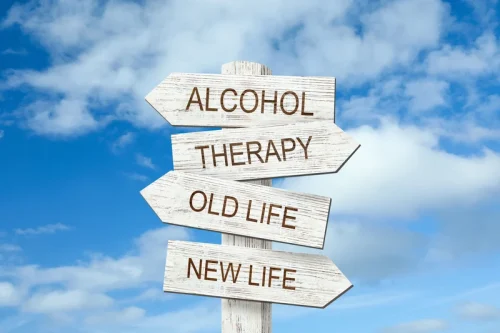
It’s also important to note that if an individual experiences brain fog after quitting drinking, it’s possible that they may experience other withdrawal symptoms as well. These can include anxiety, depression, irritability, and sleep disturbances. If you are experiencing brain fog after quitting drinking, you may wonder if it will go away on its own. These factors include the severity of the alcohol abuse, how long the individual has been drinking, and overall health status. In a nutshell, brain fog describes problems with thinking and memory that can be caused owing to stress, menopause, poor sleep, and long COVID, amongst other reasons.
‘Until I couldn’t’: Steve Wheatcroft shares story of battling depression

The scientists linked various types of age-related brain degeneration to combinations of the five patterns, although there was some variability between individuals with the same condition. The recommended daily amount of B12 an adult should consume per day is 2.4 micrograms. If you’re experiencing symptoms, I recommend discussing non-synthetic hormone therapy with your functional medicine doctor or considering natural solutions. This would explain why, during major hormone changes such as pregnancy and menopause, brain fog occurs more often. Menopause is reached when you go 12 months without a menstrual period. In one study13, women in the first year after their final menstrual cycle, or after menopause, showed higher decreases in attention, verbal learning, and verbal memory than in perimenopause.
- Brain fog feels like being slowed down unwillingly or being unable to clear your mind even though you really want to.
- In general, the more alcohol a person drinks, the more likely it becomes that alcohol will damage the brain — both in the short and long term.
- Eating a diet high in refined carbohydrates or using birth control pills over a long term can also have an impact.
- People with severe addictions or a long history of alcohol misuse may suffer serious withdrawal symptoms when quitting.
- Once the brain adjusts to alcohol use, it requires alcohol in order to function properly.
- The fortunate takeaway for recovering addicts is that there are simple ways to feed and train your brain in order to regain mental clarity that is equal or close to where it was before addiction.
What to know about alcohol and brain damage
Brain fog after quitting drinking alcohol is a common experience for many individuals. If you or someone you know is struggling with alcohol addiction or experiencing brain fog symptoms, seeking help and support from a qualified healthcare professional is essential. When it comes to alcohol’s effects on the brain, the consequences are profound. It slows down brain activity, leading to issues like memory loss, poor muscle coordination, and delayed reaction times. In more extreme cases, excessive alcohol intake can trigger blackouts, resulting in episodes of amnesia that leave individuals confused and possibly causing damage to the brain.
Sleep Your Way to Clarity: Natural Brain Fog Remedy
Many people with brain fog also feel fatigued — both mentally and physically. It’s almost as if there’s a layer of film in our mind that prevents our brain from working as well as it normally does. These daily cognitive needs and memory are so sensitive to alcohol – just imagine party binge drinkers in movies; when they have too much they can’t even remember the night before. A little too much is going to have an impact on your average workday, too. So when you’re managing stress or anything to do with your mood, you can be sure that dopamine is involved. It even helps to protect your gastrointestinal lining and works with your immune system – it’s everywhere!
This is why so many of my patients who have Candida overgrowth complain of brain fog symptoms such as poor memory, fatigue, depression or anxiety. Alcohol consumption can cause brain fog due to its impact on basic cognitive processes and the central nervous system. Adequate nutrition and hydration is critical for maintaining healthy cognitive function, and poor nutritional status is a common characteristic of alcohol abuse.
Common Symptoms of Brain Fog
- People with severe symptoms of intoxication or symptoms that last many hours are at risk of alcohol poisoning.
- This is because sleep deprivation can lead to fatigue and difficulty concentrating.
- The most common symptom of ALS is muscle weakness which often leads to paralysis and eventual death.
We then describe evidence-based treatments you can recommend to patients to help the brain, and the patient as a whole, to recover. Beyond this, by definition, consuming enough alcohol to cause a “brownout,” “blackout,” hangover, or other overt brain symptomatology is evidence that the alcohol you’ve consumed is creating problems in your brain. Alcohol use disorder (or alcoholism) is also a clear issue for the brain. It has been linked to a higher risk for dementia, especially early-onset dementia in a study of 262,000 adults, as well as to smaller brain size. While definitions can be variable, one way to look at this is the consumption of 4 or more drinks on an occasion (for women) and 5 or more for men.

Patterns of aging
On top of its essential role as a chemical in the brain, dopamine also acts as a hormone. It’s made by the adrenal gland, just like epinephrine and norepinephrine – the hormones that act behind your fight, flight, or freeze response. This feel-good chemical does a lot more than just make you feel rewarded. The amount alcohol brain fog you produce affects how you think, work, and even sleep. Our brains are wired to want a reward – and that wave of euphoria you feel when you take that first bite of your brownie or sip of wine is dopamine surging through you. Addiction and substance use disorder affects over 17% of the American population.
A Timeline for Cognitive Recovery after Abstinence
Additionally, excess alcohol is defined as drinking more than 8 drinks a week (women) and 15 a week (men), or consuming alcohol if you are pregnant or younger than age 21. As anyone who’s consumed alcohol knows, https://ecosoberhouse.com/ ethanol can directly influence brain function. Ethanol is classified as a “depressant” because it has a generally slowing effect on brain activity through activation of γ-aminobutyric acid (GABA) pathways.
Brain alterations often occur in people who start drinking when they are very young. But a person who did not previously experience brain fog may experience it during or after withdrawal. Brain fog during withdrawal does not differ substantially from brain fog during addiction. Alcoholic brain fog occurs during or after someone develops an alcohol addiction.

Alcohol abuse causes this type of damage by depleting the body of thiamine, which is an essential vitamin for the brain. There are a number of things you can do to help relieve the symptoms of brain fog. While alcohol fog is not a life-threatening condition, it can be a sign of an underlying health problem that will definitely benefit from early diagnosis and early recovery. Common hormonal imbalances that can cause brain fog include low thyroid hormone levels (hypothyroidism) and high cortisol levels (adrenal fatigue). This is because alcohol can interfere with the absorption of nutrients and lead to poor dietary habits. The direct effects of alcohol on the brain are thought to play a significant role in alcoholic brain fog.